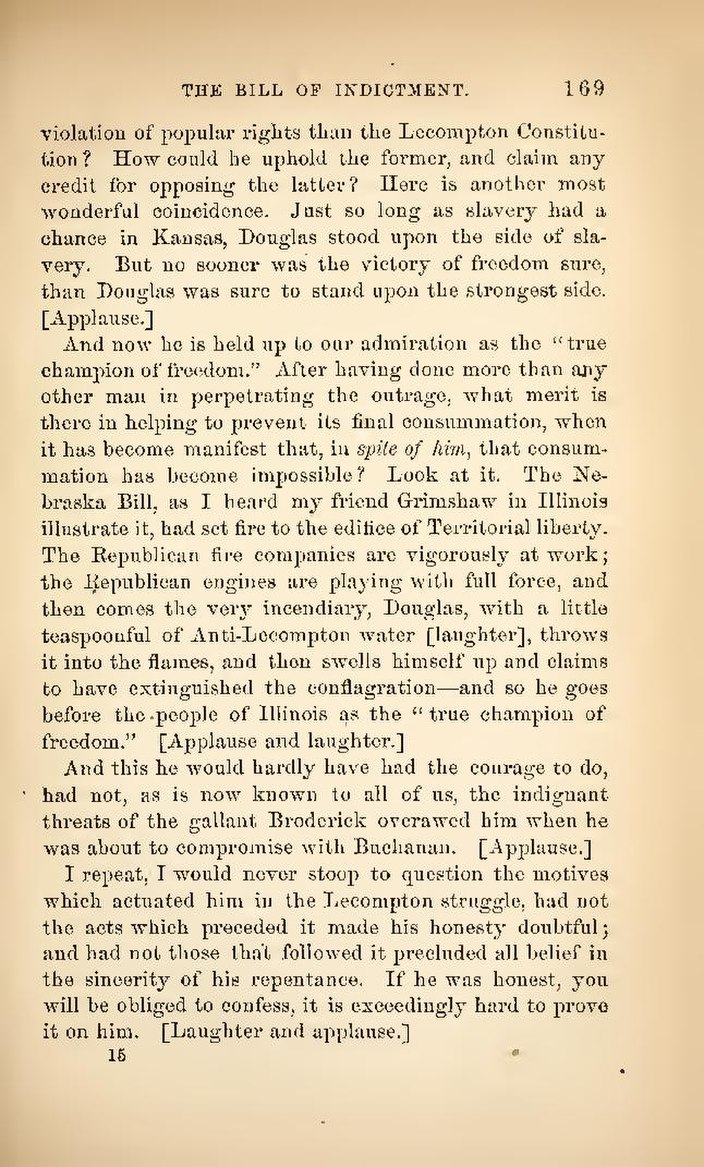violation of popular rights than the Lecompton Constitution? How could he uphold the former, and claim any credit for opposing the latter? Here is another most wonderful coincidence. Just so long as slavery had a chance in Kansas, Douglas stood upon the side of slavery. But no sooner was the victory of freedom sure, than Douglas was sure to stand upon the strongest side. [Applause.]
And now he is held up to our admiration as the “true champion of freedom.” After having done more than any other man in perpetrating the outrage, what merit is there in helping to prevent its final consummation, when it has become manifest that, in spite of him, that consummation has become impossible? Look at it. The Nebraska Bill, as I heard my friend Grimshaw in Illinois illustrate it, had set fire to the edifice of Territorial liberty. The Republican fire companies are vigorously at work; the Republican engines are playing with full force, and then comes the very incendiary, Douglas, with a little teaspoonful of Anti-Lecompton water [laughter], throws it into the flames, and then swells himself up and claims to have extinguished the conflagration—and so he goes before the people of Illinois as the “true champion of freedom.” [Applause and laughter.]
And this he would hardly have had the courage to do had not, as is now known to all of us, the indignant threats of the gallant Broderick overawed him when he was about to compromise with Buchanan. [Applause.]
I repeat, I would never stoop to question the motives which actuated him in the Lecompton struggle, had not the acts which preceded it made his honesty doubtful; and had not those that followed it precluded all belief in the sincerity of his repentance. If he was honest, you will be obliged to confess, it is exceedingly hard to prove it on him. [Laughter and applause.]
